
Pieter Bruegel the Elder Giclée Fine Art Prints 1 of 4
c.1525-1569
Flemish Northern Renaissance Painter
The contours of Pieter Bruegel the Elder's life emerge from documentary fragments and the testimony of near-contemporaries, yet the essential character of the man remains tantalizingly elusive. Born somewhere between 1525 and 1530, most likely in or near Breda, Bruegel inhabited a world convulsed by religious upheaval and political transformation. The precise location of his birth - whether in Breda itself or in some unidentified village nearby - speaks to the scholarly uncertainties that shadow our understanding of his origins.
His apprenticeship with Pieter Coecke van Aelst in Antwerp positioned him within the sophisticated mercantile networks of the Low Countries. The young artist's documented work in Mechelen between 1550 and 1551, assisting Peeter Baltens with an altarpiece, suggests an early facility with collaborative enterprise - a pragmatic approach that would characterize his professional trajectory. His entry into the Guild of Saint Luke in 1551 marked not merely professional recognition but the beginning of his Italian sojourn, that obligatory pilgrimage for Northern artists seeking classical legitimacy.
Bruegel's Italian journey, extending to the southernmost reaches of Calabria and possibly Sicily, diverged from conventional artistic tourism. Where others sketched ruins and copied Renaissance masters, Bruegel absorbed landscape and recorded contemporary disasters - his drawing of Reggio Calabria aflame after Turkish raiders speaks to an eye trained on immediate reality rather than classical ideals. His collaboration with the miniaturist Giulio Clovio in Rome hints at versatility and adaptability, qualities that would serve him well upon his return north.
The Antwerp years from 1555 to 1563 established Bruegel as a designer of prints, working primarily for Hieronymus Cock's publishing house. This commercial engagement - producing over forty designs for mass reproduction - reveals an artist attuned to market demands while developing his distinctive vision. The orthographic shift in 1559, when he dropped the 'h' from his surname and adopted Roman capitals, suggests calculated self-fashioning, an assertion of humanist credentials despite his apparent unfamiliarity with Latin.
His marriage in 1563 to Mayken Coecke, daughter of his deceased master, consolidated professional and personal networks while precipitating his move from Antwerp to Brussels. Van Mander's suggestion that this relocation was engineered by a mother-in-law intent on separating Bruegel from a servant mistress adds human complexity to the narrative, though such anecdotal embellishments must be approached with appropriate skepticism. The Brussels decade witnessed his transformation from printmaker to painter, producing the works that would secure his posthumous reputation.
The patron relationships Bruegel cultivated - with collectors like Nicolaes Jonghelinck and Cardinal Granvelle - positioned him within elite circles even as his subject matter increasingly focused on peasant life. This apparent paradox - the sophisticated urbanite depicting rural festivities and agricultural labors - suggests deliberate artistic strategy rather than autobiographical inclination. His death on September 9, 1569, at perhaps forty-four years of age, truncated a career of remarkable productivity and innovation.
Two sons survived him: Pieter Brueghel the Younger and Jan Brueghel the Elder, both maintaining the earlier spelling of the family name. Their grandmother Mayken Verhulst assumed their artistic education, establishing a dynastic tradition that would extend Bruegel's influence across generations. The reported deathbed instruction to burn certain drawings deemed "too sharp or sarcastic" tantalizes with suggestions of political engagement or satirical commentary deemed too dangerous for turbulent times. Such gestures toward self-censorship illuminate the precarious position of artists navigating the treacherous currents of Reformation politics and Habsburg authority. The very incompleteness of our knowledge - the lost works, the destroyed drawings, the uncertainties of attribution - becomes part of Bruegel's historical identity, an artist whose biography remains as layered and complex as his painted surfaces.
His apprenticeship with Pieter Coecke van Aelst in Antwerp positioned him within the sophisticated mercantile networks of the Low Countries. The young artist's documented work in Mechelen between 1550 and 1551, assisting Peeter Baltens with an altarpiece, suggests an early facility with collaborative enterprise - a pragmatic approach that would characterize his professional trajectory. His entry into the Guild of Saint Luke in 1551 marked not merely professional recognition but the beginning of his Italian sojourn, that obligatory pilgrimage for Northern artists seeking classical legitimacy.
Bruegel's Italian journey, extending to the southernmost reaches of Calabria and possibly Sicily, diverged from conventional artistic tourism. Where others sketched ruins and copied Renaissance masters, Bruegel absorbed landscape and recorded contemporary disasters - his drawing of Reggio Calabria aflame after Turkish raiders speaks to an eye trained on immediate reality rather than classical ideals. His collaboration with the miniaturist Giulio Clovio in Rome hints at versatility and adaptability, qualities that would serve him well upon his return north.
The Antwerp years from 1555 to 1563 established Bruegel as a designer of prints, working primarily for Hieronymus Cock's publishing house. This commercial engagement - producing over forty designs for mass reproduction - reveals an artist attuned to market demands while developing his distinctive vision. The orthographic shift in 1559, when he dropped the 'h' from his surname and adopted Roman capitals, suggests calculated self-fashioning, an assertion of humanist credentials despite his apparent unfamiliarity with Latin.
His marriage in 1563 to Mayken Coecke, daughter of his deceased master, consolidated professional and personal networks while precipitating his move from Antwerp to Brussels. Van Mander's suggestion that this relocation was engineered by a mother-in-law intent on separating Bruegel from a servant mistress adds human complexity to the narrative, though such anecdotal embellishments must be approached with appropriate skepticism. The Brussels decade witnessed his transformation from printmaker to painter, producing the works that would secure his posthumous reputation.
The patron relationships Bruegel cultivated - with collectors like Nicolaes Jonghelinck and Cardinal Granvelle - positioned him within elite circles even as his subject matter increasingly focused on peasant life. This apparent paradox - the sophisticated urbanite depicting rural festivities and agricultural labors - suggests deliberate artistic strategy rather than autobiographical inclination. His death on September 9, 1569, at perhaps forty-four years of age, truncated a career of remarkable productivity and innovation.
Two sons survived him: Pieter Brueghel the Younger and Jan Brueghel the Elder, both maintaining the earlier spelling of the family name. Their grandmother Mayken Verhulst assumed their artistic education, establishing a dynastic tradition that would extend Bruegel's influence across generations. The reported deathbed instruction to burn certain drawings deemed "too sharp or sarcastic" tantalizes with suggestions of political engagement or satirical commentary deemed too dangerous for turbulent times. Such gestures toward self-censorship illuminate the precarious position of artists navigating the treacherous currents of Reformation politics and Habsburg authority. The very incompleteness of our knowledge - the lost works, the destroyed drawings, the uncertainties of attribution - becomes part of Bruegel's historical identity, an artist whose biography remains as layered and complex as his painted surfaces.
87 Bruegel the Elder Artworks
Page 1 of 4
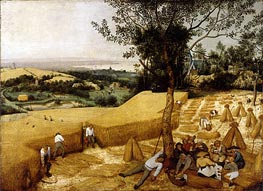
Giclée Canvas Print
$72.20
$72.20
SKU: 6410-BEP
Pieter Bruegel the Elder
Original Size:119 x 162 cm
Metropolitan Museum of Art, New York, USA
Pieter Bruegel the Elder
Original Size:119 x 162 cm
Metropolitan Museum of Art, New York, USA
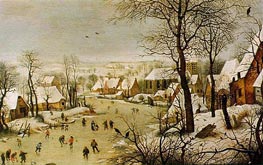
Giclée Canvas Print
$67.69
$67.69
SKU: 462-BEP
Pieter Bruegel the Elder
Original Size:39 x 57 cm
Kunsthistorisches Museum, Vienna, Austria
Pieter Bruegel the Elder
Original Size:39 x 57 cm
Kunsthistorisches Museum, Vienna, Austria
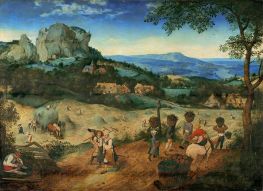
Giclée Canvas Print
$72.20
$72.20
SKU: 6475-BEP
Pieter Bruegel the Elder
Original Size:116.2 x 160.7 cm
National Gallery, Prague, Czech Republic
Pieter Bruegel the Elder
Original Size:116.2 x 160.7 cm
National Gallery, Prague, Czech Republic
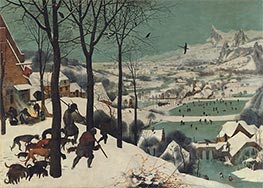
Giclée Canvas Print
$70.95
$70.95
SKU: 461-BEP
Pieter Bruegel the Elder
Original Size:117 x 162 cm
Kunsthistorisches Museum, Vienna, Austria
Pieter Bruegel the Elder
Original Size:117 x 162 cm
Kunsthistorisches Museum, Vienna, Austria
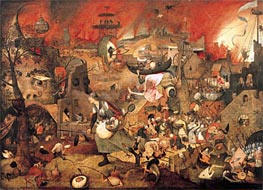
Giclée Canvas Print
$71.30
$71.30
SKU: 6465-BEP
Pieter Bruegel the Elder
Original Size:117 x 162 cm
Museum Mayer van der Berg, Antwerp, Belgium
Pieter Bruegel the Elder
Original Size:117 x 162 cm
Museum Mayer van der Berg, Antwerp, Belgium
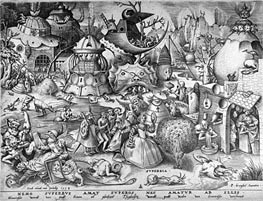
Giclée Paper Art Print
$62.03
$62.03
SKU: 6440-BEP
Pieter Bruegel the Elder
Original Size:22.2 x 29 cm
The Israel Museum, Jerusalem, Israel
Pieter Bruegel the Elder
Original Size:22.2 x 29 cm
The Israel Museum, Jerusalem, Israel
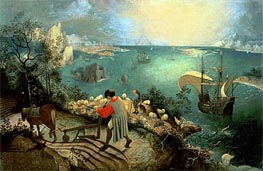
Giclée Canvas Print
$65.51
$65.51
SKU: 472-BEP
Pieter Bruegel the Elder
Original Size:73.5 x 112 cm
Royal Museums of Fine Arts, Brussels, Belgium
Pieter Bruegel the Elder
Original Size:73.5 x 112 cm
Royal Museums of Fine Arts, Brussels, Belgium
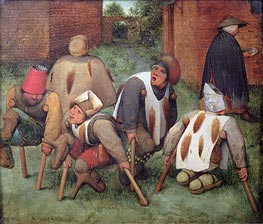
Giclée Canvas Print
$65.51
$65.51
SKU: 6473-BEP
Pieter Bruegel the Elder
Original Size:18.5 x 21.5 cm
Louvre Museum, Paris, France
Pieter Bruegel the Elder
Original Size:18.5 x 21.5 cm
Louvre Museum, Paris, France
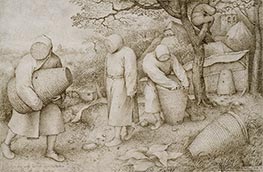
Giclée Paper Art Print
$62.03
$62.03
SKU: 6419-BEP
Pieter Bruegel the Elder
Original Size:20.3 x 30.9 cm
Alte Nationalgalerie, Berlin, Germany
Pieter Bruegel the Elder
Original Size:20.3 x 30.9 cm
Alte Nationalgalerie, Berlin, Germany
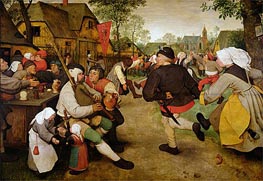
Giclée Canvas Print
$113.95
$113.95
SKU: 471-BEP
Pieter Bruegel the Elder
Original Size:114 x 164 cm
Kunsthistorisches Museum, Vienna, Austria
Pieter Bruegel the Elder
Original Size:114 x 164 cm
Kunsthistorisches Museum, Vienna, Austria
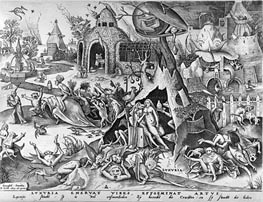
Giclée Paper Art Print
$62.03
$62.03
SKU: 6441-BEP
Pieter Bruegel the Elder
Original Size:22.5 x 29.5 cm
The Israel Museum, Jerusalem, Israel
Pieter Bruegel the Elder
Original Size:22.5 x 29.5 cm
The Israel Museum, Jerusalem, Israel
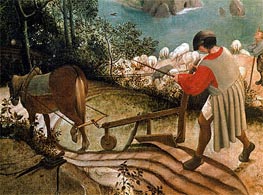
Giclée Canvas Print
$102.40
$102.40
SKU: 6444-BEP
Pieter Bruegel the Elder
Original Size:unknown
Royal Museums of Fine Arts, Brussels, Belgium
Pieter Bruegel the Elder
Original Size:unknown
Royal Museums of Fine Arts, Brussels, Belgium
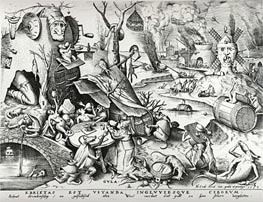
Giclée Paper Art Print
$62.03
$62.03
SKU: 6432-BEP
Pieter Bruegel the Elder
Original Size:22.4 x 29.5 cm
The Israel Museum, Jerusalem, Israel
Pieter Bruegel the Elder
Original Size:22.4 x 29.5 cm
The Israel Museum, Jerusalem, Israel
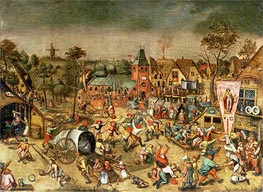
Giclée Canvas Print
$89.10
$89.10
SKU: 6416-BEP
Pieter Bruegel the Elder
Original Size:unknown
Private Collection
Pieter Bruegel the Elder
Original Size:unknown
Private Collection
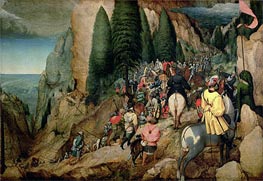
Giclée Canvas Print
$68.23
$68.23
SKU: 468-BEP
Pieter Bruegel the Elder
Original Size:108 x 156 cm
Kunsthistorisches Museum, Vienna, Austria
Pieter Bruegel the Elder
Original Size:108 x 156 cm
Kunsthistorisches Museum, Vienna, Austria
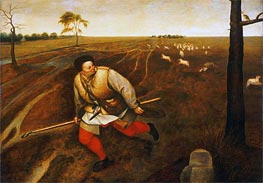
Giclée Canvas Print
$70.03
$70.03
SKU: 6413-BEP
Pieter Bruegel the Elder
Original Size:61.6 x 86.7 cm
Philadelphia Museum of Art, Pennsylvania, USA
Pieter Bruegel the Elder
Original Size:61.6 x 86.7 cm
Philadelphia Museum of Art, Pennsylvania, USA
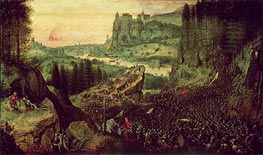
Giclée Canvas Print
$65.51
$65.51
SKU: 6442-BEP
Pieter Bruegel the Elder
Original Size:33.5 x 55 cm
Kunsthistorisches Museum, Vienna, Austria
Pieter Bruegel the Elder
Original Size:33.5 x 55 cm
Kunsthistorisches Museum, Vienna, Austria
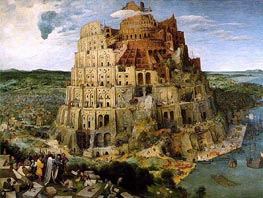
Giclée Canvas Print
$72.57
$72.57
SKU: 466-BEP
Pieter Bruegel the Elder
Original Size:114 x 155 cm
Kunsthistorisches Museum, Vienna, Austria
Pieter Bruegel the Elder
Original Size:114 x 155 cm
Kunsthistorisches Museum, Vienna, Austria
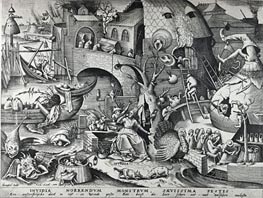
Giclée Paper Art Print
$62.03
$62.03
SKU: 6431-BEP
Pieter Bruegel the Elder
Original Size:22.5 x 29.5 cm
The Israel Museum, Jerusalem, Israel
Pieter Bruegel the Elder
Original Size:22.5 x 29.5 cm
The Israel Museum, Jerusalem, Israel
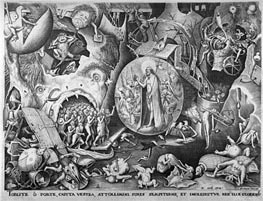
Giclée Paper Art Print
$62.03
$62.03
SKU: 6435-BEP
Pieter Bruegel the Elder
Original Size:23.4 x 29.2 cm
The Israel Museum, Jerusalem, Israel
Pieter Bruegel the Elder
Original Size:23.4 x 29.2 cm
The Israel Museum, Jerusalem, Israel
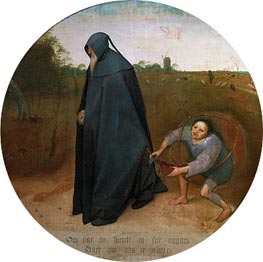
Giclée Canvas Print
$99.28
$99.28
SKU: 12218-BEP
Pieter Bruegel the Elder
Original Size:85 x 85 cm
Museo Nazionale di Capodimonte , Napoli, Italy
Pieter Bruegel the Elder
Original Size:85 x 85 cm
Museo Nazionale di Capodimonte , Napoli, Italy
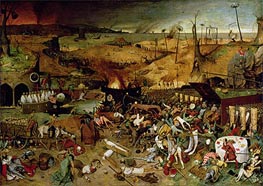
Giclée Canvas Print
$71.12
$71.12
SKU: 6464-BEP
Pieter Bruegel the Elder
Original Size:117 x 162 cm
Prado Museum, Madrid, Spain
Pieter Bruegel the Elder
Original Size:117 x 162 cm
Prado Museum, Madrid, Spain
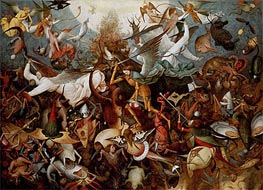
Giclée Canvas Print
$71.67
$71.67
SKU: 12220-BEP
Pieter Bruegel the Elder
Original Size:117 x 162 cm
Royal Museums of Fine Arts, Brussels, Belgium
Pieter Bruegel the Elder
Original Size:117 x 162 cm
Royal Museums of Fine Arts, Brussels, Belgium
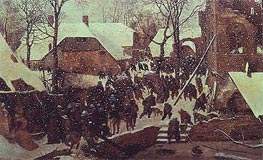
Giclée Canvas Print
$65.51
$65.51
SKU: 6468-BEP
Pieter Bruegel the Elder
Original Size:35 x 55 cm
Oskar Reinhart Museum, Winterthur, Switzerland
Pieter Bruegel the Elder
Original Size:35 x 55 cm
Oskar Reinhart Museum, Winterthur, Switzerland